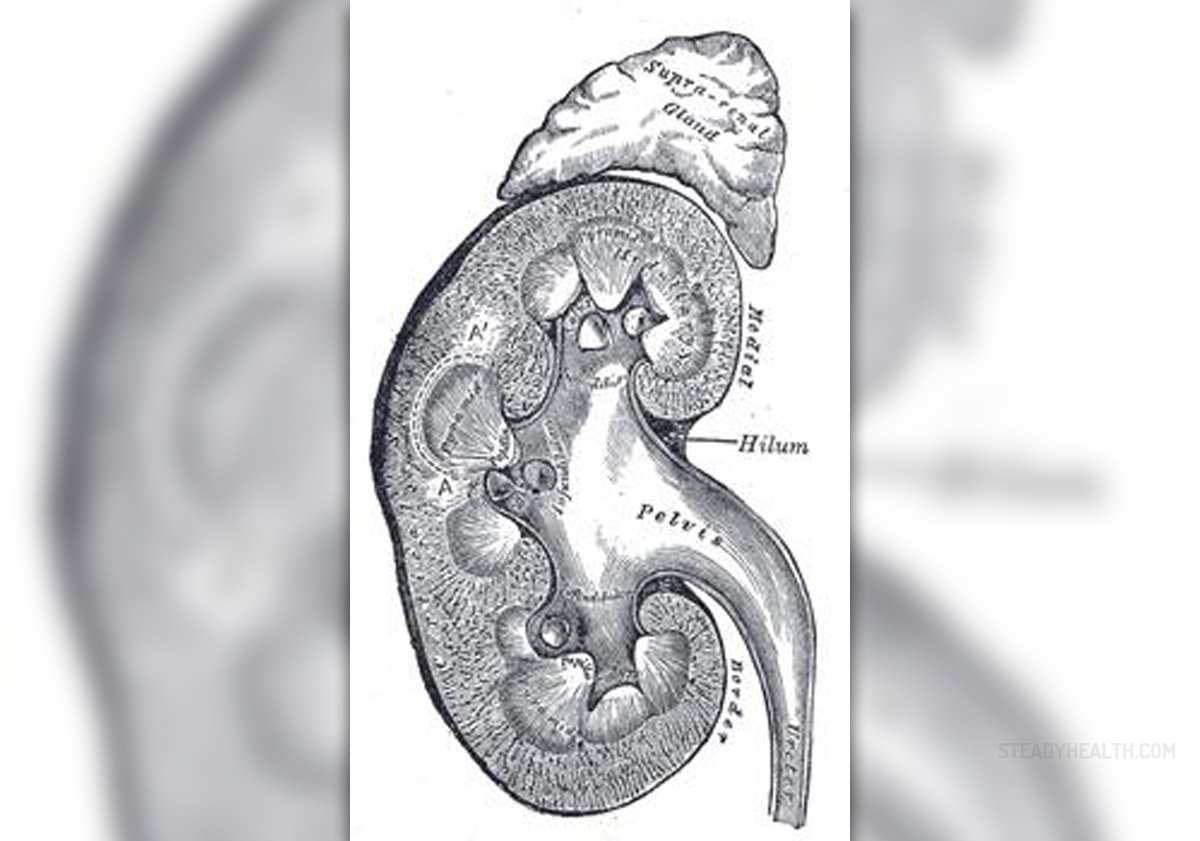
Kidney infection or pyelonephritis is of bacterial originand may affect either one or both kidneys. In 90% of all kidney infections thecause is bacteria known as Escherichia coli. The infection usually starts inthe bladder, moves up and affects the kidneys.
Some conditions are known to decrease defense mechanisms ofthe body and thus are associated with kidney infections. Abnormalities of theurinary tract, pregnancy and diabetes may make people more prone to theseinfections. People suffering from kidney stones or cancer may also experiencekidney infection due to the weakened immune system. Women may get infectedafter the entrance of bacteria to their urinary tract after sexual intercourse.Extended use of Foley catheters is also connected to increased risk of kidneyinfections.
There is a difference between the acute and chronic kidneyinfection. Acute kidney infection starts all of a sudden, the symptoms areusually very severe but it also ends up rapidly. In the case when someonesuffers from chronic kidney infection, the condition is known to progressslowly and become worse over a certain period of time.
Kidney Infection Symptoms
People suffering from kidney infection may experiencefrequent urge to urinate or inability to urinate. Some of thesepatients have reported burning or the pain caused by urination, specific smelland cloudiness of the urine and sometimes blood or pus in the urine.
Pain in the back, in the groins or in the loin, accompaniedby some pressure or pain in the abdominal area is also frequent in patientssuffering from kidney infection. Nausea, the fever or some night time urge tourinate (nocturia) can also indicate kidney infection.
Babies or small children suffering from this condition may losetheir appetite, experience some loose bowel movements or wet the bed(enuresis). In some cases, these children may become increasingly irritated.
Elderly patients suffering from kidney infection can experiencedifferent mental changes, including some confusion, as only symptoms of thiscondition.
Recognize Severe Symptoms of Kidney Infection
When the condition gets serious, there might be some shakingchills and vomiting. High fever (over 38.3 degrees Celsius), night sweating, extremetiredness and confusion may also be present if kidney infection progressed.
Kidney infection must be treated, because consequences couldbe very severe. Blood poisoning, loss of a kidney or in some cases even deathmight be direct result of untreated kidney infection.
Burning sensation during urination, especially if it iscombined with intense pain is the certain sign of kidney infection. Dull ache,located high above the waist or in the lower back, sensed as repetitiouspunches also indicated kidney infection. Watch for exhaustion and fatigue,also, because these symptoms are very common for this medical condition.

















Your thoughts on this
Loading...